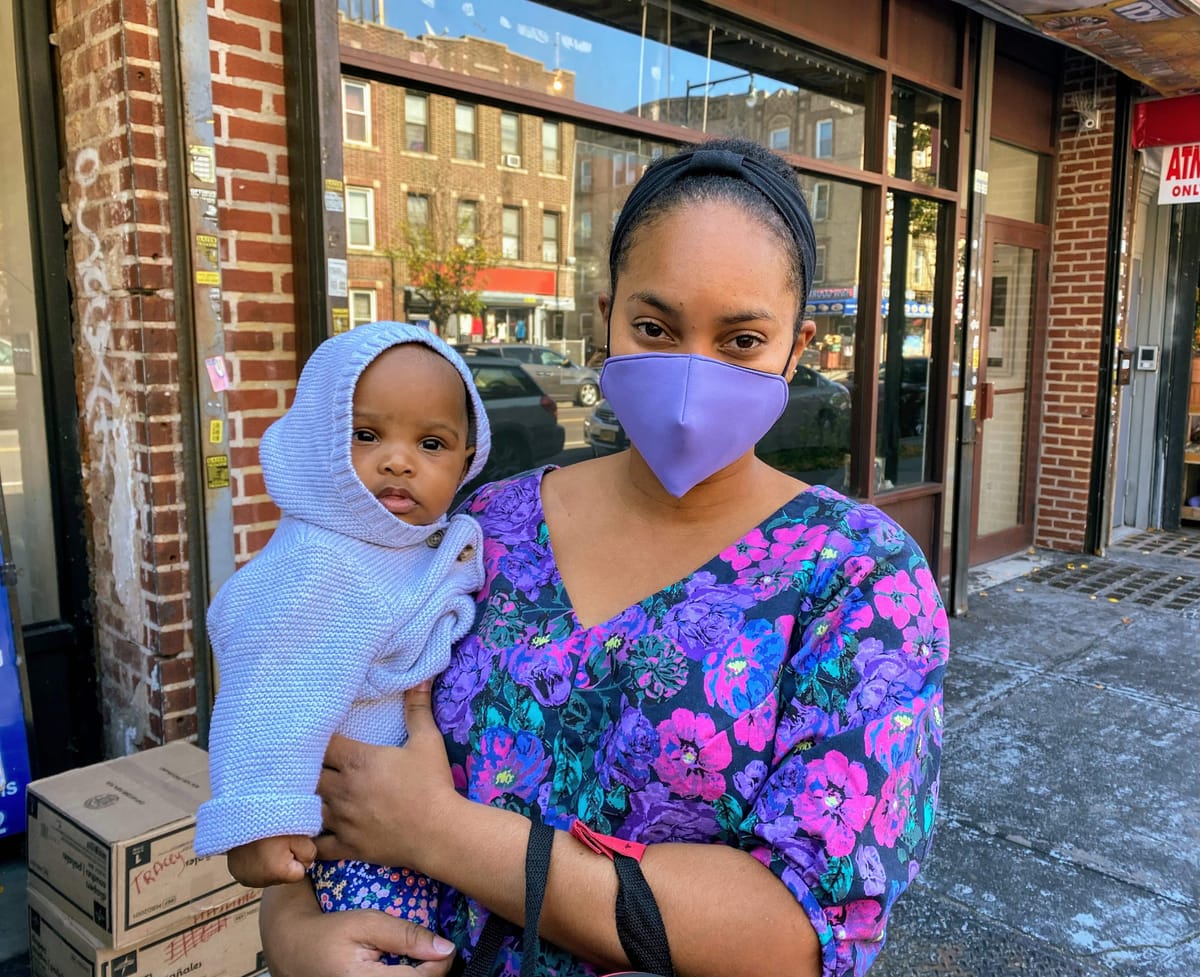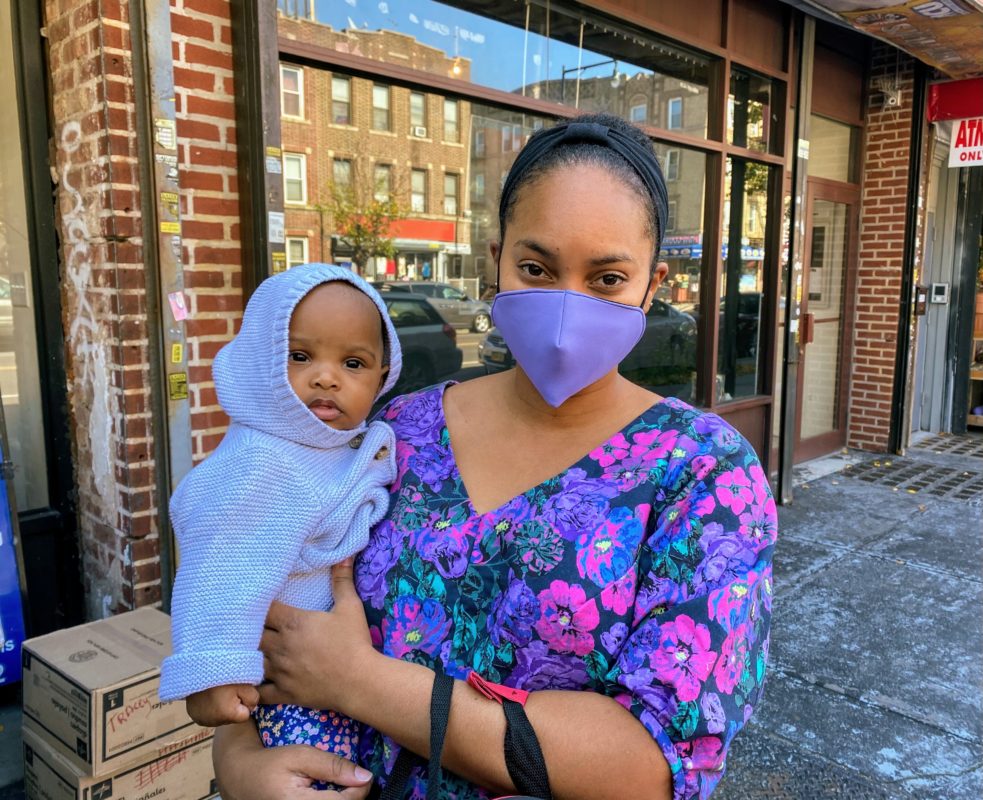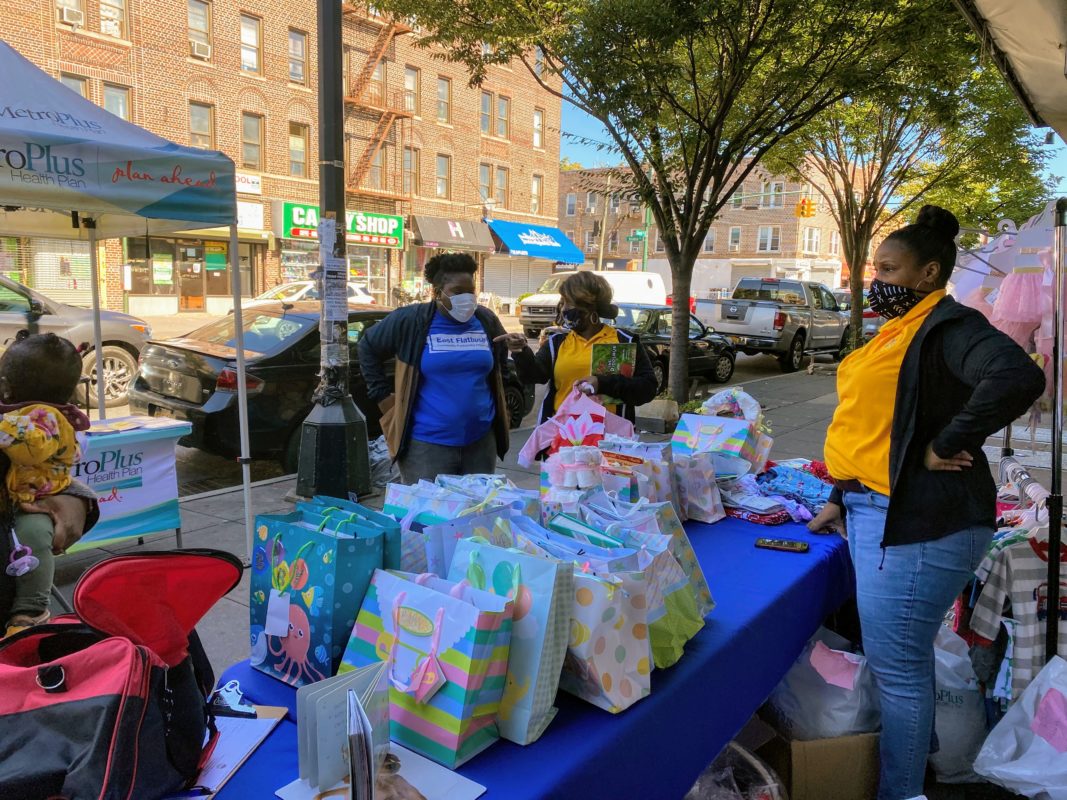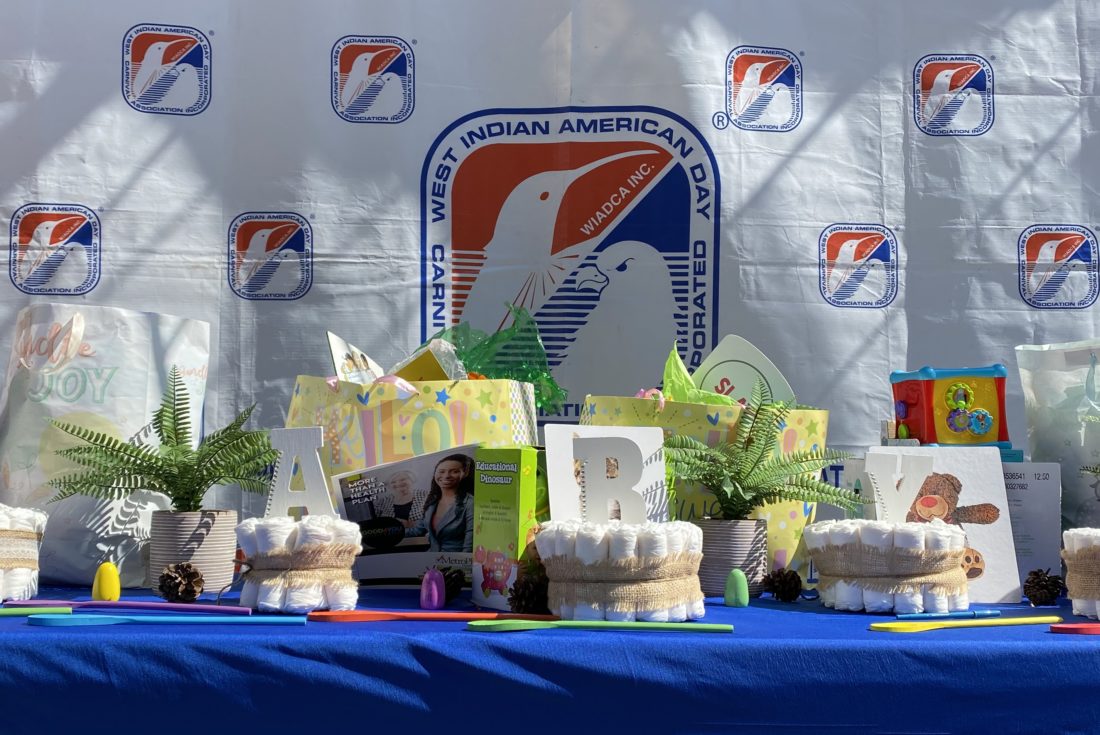Giving Birth During Pandemic: East Flatbush Moms Dream Of Homebirth, Try To Make The Best Of It

On a table set up outside on Rogers Avenue in East Flatbush for a community baby shower, gift bags filled with diapers, formula and other baby necessities sat unclaimed – six of the 20 moms had gone into labor in the last 48 hours, earlier than expected.

“There’s high anxiety, especially now during COVID,” says Rhea Smith, Women’s Health Director at Caribbean Women’s Health Association, who organized the baby shower on Rogers Avenue. “Imagine you being pregnant, you’re already stressed because your body is stressed being pregnant, but now [because of COVID] you may have to find a new hospital, a new doctor, possibly a new birth plan, and hope that it all works out for a successful birth outcome. All those things add to hypertension, high blood pressure, diabetes and all of these things that these women face.”
High stress has been known to have a negative impact on pregnant mothers leading to preterm labor and low birth weight. COVID-19 has only exacerbated many stressors East Flatbush residents faced before the pandemic- like housing and food insecurities.
“We know that women experience stress throughout pregnancy, especially during this time of the COVID-19 pandemic,” says Laura Sienas, M.D. and Acting Assistant Professor of Maternal-Fetal Medicine at the University of Washington. “Psychosocial stress in pregnancy has been associated with an increased risk of spontaneous preterm birth. It is challenging to determine if the risk of preterm birth associated with COVID19 is due to spontaneous labor or due to need for early delivery for either maternal health benefit or treatment of developed pregnancy complications.”
Kenia Dutestesile, 34, gave birth to her second child in August. Her four-year-old son was born in Haiti, her native country. Dutestesile says the pregnancies and births were very different from one another. In Haiti, prenatal care was sparse, but she had a healthy support system of family and friends to help. In New York, she lacks that village of help, which she felt added to her worry during the pandemic. “I was scared. But I didn’t have another choice” Dutestesile says.

Other moms have felt the same fears because of the increased isolation due to COVID-19. Smith says participation in CWHA’s virtual workshops has increased by 300% since the pandemic began. During the workshops, moms learn how to properly breastfeed or attend parenting classes, but most importantly, Smith says, they connect with other moms to alleviate the solitude. “Women who have been self-isolated who are dealing with emotional issues and their mental health and wellness have come on just for the comradery, to speak to another woman about what she is going through.”
Ashanti Walker, 32, is pregnant with her third child. She joined the community of other women virtually during the pandemic, at first for breastfeeding support, but found friendship and resources for all aspects of parenting. “Hearing that families are going through some of the same things that I’m going through helps,” Walker says. “It helps to see how they are coping with things during the pandemic.”
Walker gave birth to her other two children in the hospital. The pandemic makes her wish for a birth at home, but logistically, it’s been difficult to figure out. Walker’s health insurance doesn’t cover midwife services for a home birth, so she’s looking for other options, like affordable sliding scale services. Smith says many of the mothers she works with are also interested in home birth, especially with the fear surrounding hospital environments right now and their increased restrictions. But, Smith reiterates, that just isn’t an option for many East Flatbush moms due to cost and other factors like space. “They don’t have any space in their apartments.”
For Smith, and other folks working in the birth justice movement, the pandemic has heightened their need to offer their services and education. The CDC reports Black women have a 14% higher risk of preterm labor where a baby is born before 37 weeks. East Flatbush is roughly 87% Black and also has the highest rates of infant mortality and maternal morbidity in the city.

“Giving birth during a pandemic was unpredictable,” says Angelica Kirlew, a 34-year-old new mom. “It was challenging because we were alone. We didn’t have our family support system. We couldn’t even have our doula.” Kirlew has been on edge the past few months thinking about her newborn daughter being exposed to COVID-19, and what she would do in the event her daughter was sick. So far, she’s had to rely on telemedicine for check-ups and minor concerns, as have many moms for pre and post natal checks.
Smith and her team plan to assist 500 moms by December and continue to mitigate the stressors affecting moms. They are looking ahead at the possibility of another lockdown, and want to make sure the women they work with are prepared too. This includes not only making sure they have necessary supplies, but also that they understand their options and rights when it comes to their pregnancy and labor.
“The level of stress is just a little bit too much for me right now,” says Walker “but I’m trying my best to maintain some type of positive energy for me and my baby and my family.”




